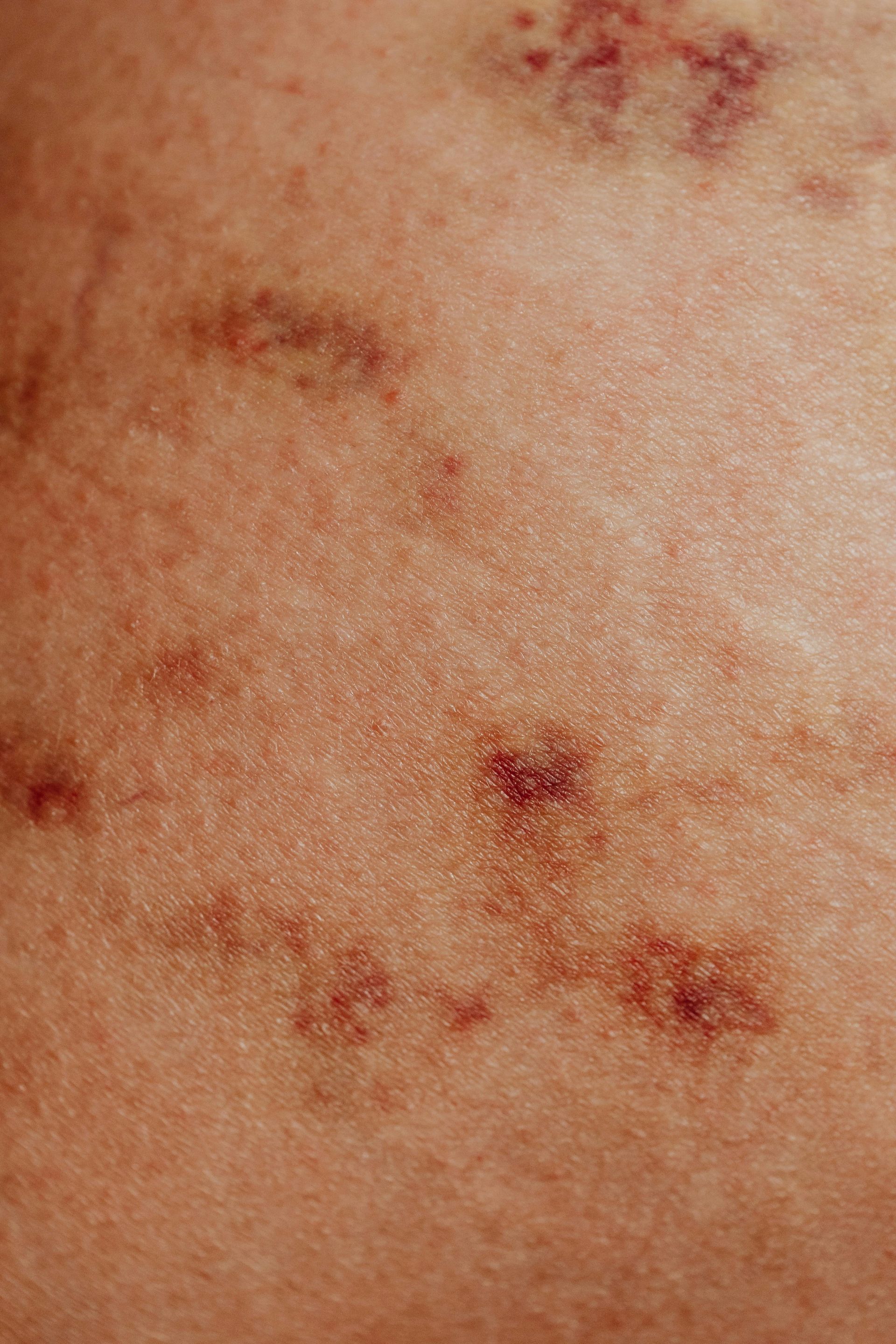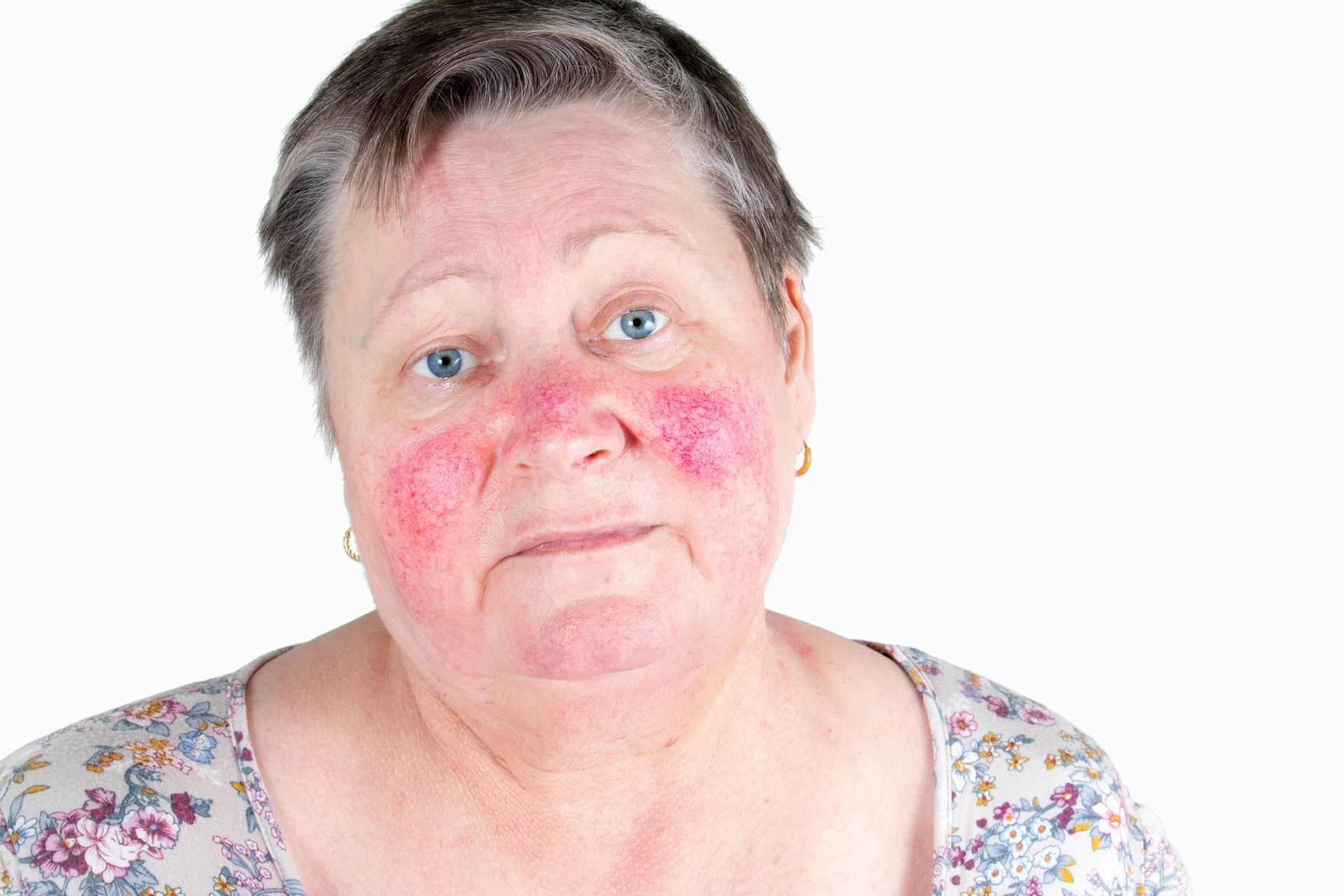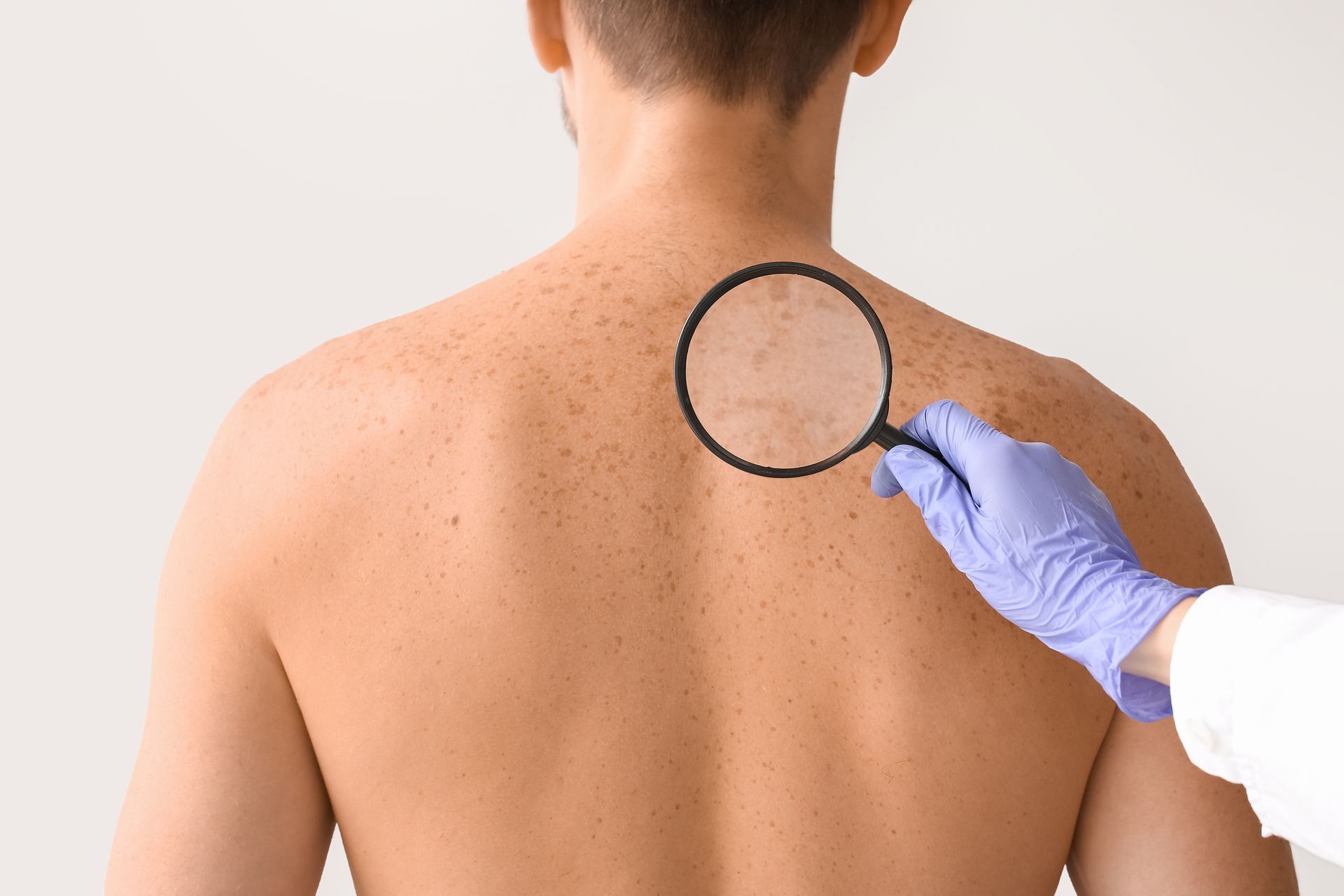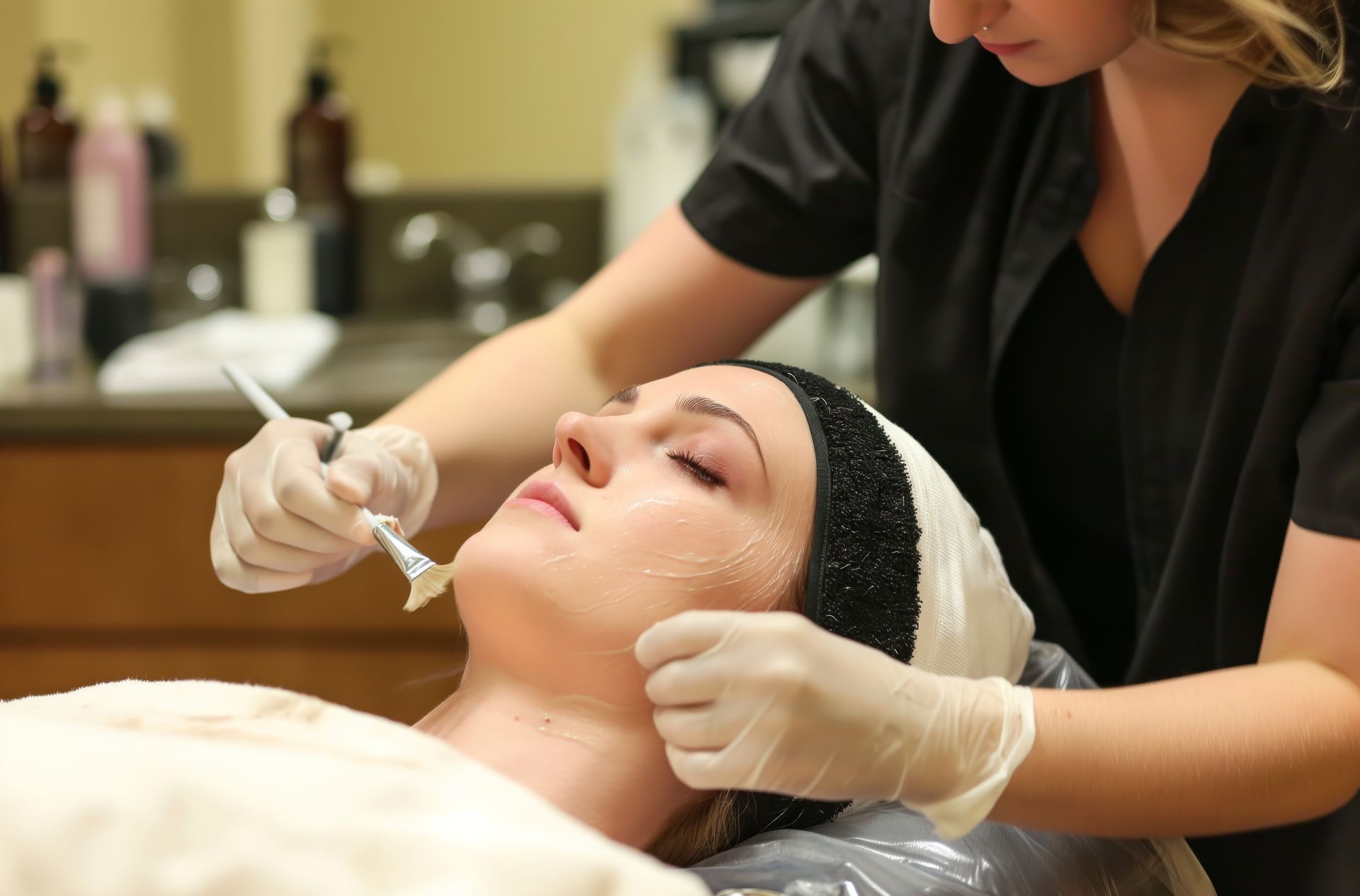Effective Treatments for Hyperpigmentation: How to Even Skin Tone
Uneven skin pigmentation, a widespread cosmetic concern, manifests as dark patches and irregular skin tone. This condition, which affects people of every skin type, is often triggered by sun damage, hormonal imbalances, skin irritation, and age-related changes. Fortunately, there are numerous effective hyperpigmentation treatments available to help you achieve a brighter and more even complexion.
At
Kaveri Karhade MD Dermatology in San Francisco, CA, we specialize in personalized
skin pigmentation treatments tailored to your unique needs. This article will explore various solutions, from topical treatments to advanced dermatological procedures, helping you understand the best approaches to restore your skin's natural radiance.
1. Understanding Hyperpigmentation and Its Causes
An overabundance of melanin, the substance that gives skin its hue, leads to hyperpigmentation. This excess production can be triggered by a number of elements, such as:
- Sun Exposure: The skin's melanin production can be activated by ultraviolet (UV) radiation, causing sunspots and a non-uniform skin pigmentation.
- Hormonal Changes: Patchy skin pigmentation, as seen in melasma, is commonly brought on by hormonal shifts related to pregnancy or the use of oral contraceptives.
- Post-Inflammatory Hyperpigmentation (PIH): Acne, eczema, or skin injuries can leave behind dark marks.
- Aging: Age spots and changes in skin pigmentation are often the result of both the skin's natural aging and the build-up of sun damage over many years.
- Genetics: Some individuals may be genetically predisposed to developing pigmentation disorders more than others.
- Certain Medications: Certain medications, such as some antibiotics and chemotherapy drugs, can lead to a darkening of the skin.
By identifying the root cause of hyperpigmentation, we can determine the most effective skin pigmentation treatment for you.
2. Topical Treatments for Hyperpigmentation
One of the first steps in treating hyperpigmentation is using topical agents that lighten dark spots and even out skin tone. Some of the most effective ingredients include:
- Hydroquinone: A powerful ingredient used to lighten skin by stopping the production of pigment.
- Vitamin C: A skin-brightening antioxidant that also functions to minimize the appearance of pigmentation.
- Retinoids (Retinol & Tretinoin): Promote cell turnover and fade dark spots over time.
- Kojic Acid: Derived from fungi, this ingredient inhibits melanin formation.
- Azelaic Acid: Reduces inflammation and pigmentation, making it ideal for sensitive skin.
- Niacinamide: A form of vitamin B3 that helps improve skin texture and tone.
- Licorice Extract: Naturally brightens skin and helps reduce dark spots over time.
- Alpha Arbutin: A gentle skin-brightening ingredient that inhibits melanin production without irritation.
For optimal results, these ingredients should be incorporated into a dermatologist-recommended skincare routine. We can help you choose the right combination of products based on your skin type and concerns.
3. Professional Hyperpigmentation Treatments
While topical solutions can be effective, professional treatments often provide faster and more dramatic results. Some of the most recommended dermatological procedures include:
Chemical Peels
Chemical peels use exfoliating acids (such as glycolic, lactic, or trichloroacetic acid) to remove the outer layer of damaged skin. This process stimulates new cell growth, reducing the appearance of dark spots and promoting a more even complexion. Peels vary in strength, with superficial peels requiring little downtime and deeper peels providing more intensive results.
Laser Therapy
Targeting areas of discoloration, laser therapies including fractional lasers and intense pulsed light (IPL) function by breaking down the overproduction of melanin. These procedures are highly effective but require professional assessment to determine the best option for your skin type. Some lasers are better suited for lighter skin tones, while others, like Nd:YAG lasers, are safer for darker skin.
Microneedling with PRP
Microneedling creates tiny micro-injuries in the skin, stimulating collagen production and skin renewal. When combined with platelet-rich plasma (PRP), this treatment enhances healing and improves skin tone, helping reduce stubborn hyperpigmentation.
Dermabrasion and Microdermabrasion
These exfoliating treatments remove the uppermost skin layers to reduce hyperpigmentation, revealing fresh and healthy skin underneath. Microdermabrasion is a gentler alternative to dermabrasion, making it ideal for mild to moderate discoloration.
Intensive Prescription Treatments
For severe hyperpigmentation, dermatologists may recommend customized prescription creams containing hydroquinone, retinoids, and other medical-grade ingredients to deliver faster, targeted results.
4. Preventing and Managing Hyperpigmentation
Prevention is key to maintaining even skin tone and avoiding future dark spots. Follow these essential tips:
- Daily Sun Protection: Use a broad-spectrum sunscreen (SPF 30 or higher) every day, even on cloudy days. UV exposure worsens hyperpigmentation and can make treatments less effective.
- Avoid Picking at Skin: Scratching or squeezing blemishes can lead to post-inflammatory hyperpigmentation.
- Use Antioxidant-Rich Skincare: Ingredients like vitamin C and E protect against environmental damage.
- Seek Professional Advice: A dermatologist can help create a customized plan to keep your skin clear and radiant.
- Stay Hydrated and Eat a Balanced Diet: Proper hydration and a diet rich in antioxidants support skin health and aid in the healing process.
5. Choosing the Right Treatment for Your Skin Type
Different skin types require different approaches to treating hyperpigmentation. Factors such as skin sensitivity, tone, and underlying conditions influence the best approach. At Kaveri Karhade MD Dermatology, we provide personalized consultations to assess your skin and recommend treatments tailored to your needs. Whether you require gentle brightening products or advanced laser therapy, our team ensures safe and effective solutions.
Get Professional Help for Your Skin Concerns with Kaveri Karhade MD Dermatology
If you’re struggling with uneven skin tone, dark spots, or other pigmentation issues, professional treatment can make a significant difference. At
Kaveri Karhade MD Dermatology, we offer expert
skin pigmentation treatments to help you achieve a flawless complexion. We also do
dermal fillers,
hair restoration,
body contouring,
laser treatments, and more. Contact us today at
(415) 923-3377 to schedule a consultation and take the first step toward radiant skin!
FAQs
-
How much time is generally needed for hyperpigmentation treatments to produce noticeable effects?
The timeline varies depending on the treatment. Topical treatments can take several weeks to months, while professional procedures like chemical peels or lasers may show results within a few sessions.
-
Can every skin type safely undergo hyperpigmentation treatments?
Yes, but some treatments are more suitable for certain skin tones. It’s essential to consult with a dermatologist to choose the safest and most effective option for your skin type.
-
Can hyperpigmentation come back after treatment?
Yes, especially if preventive measures like sun protection aren’t followed. Regular skincare maintenance and dermatologist-recommended treatments can help keep pigmentation under control.
-
Is laser treatment painful?
Most laser treatments involve minimal discomfort. A numbing cream is often applied before the procedure to ensure a comfortable experience.
-
What is the best way to prevent hyperpigmentation?
Daily sunscreen use, avoiding skin trauma, and incorporating antioxidant-rich skincare products can help prevent the recurrence of hyperpigmentation.









Copyright. Kaveri Karhade MD Dermatology. All Rights Reserved.

